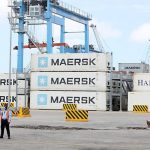Eighteen Kenyan crew members aboard Mediterranean Shipping Company (MSC) cruise vessel which docked in East African ports last week will not be allowed to ashore in Mexico after the country and three others enforced new seafarer immigration requirements.
Mexico, Brazil, Florida and the Caribbean have announced implementation of key international labour standards for fishers and other crew members for security purposes and to control increasing human trafficking cases in disguise as crew members.
The four countries now join the US and Canada which made it mandatory for crew members to have Seafarers’ Identity Document (SID) before boarding or disembarking on any vessel but the Kenyan government delays to implement the convention will likely to put thousands of Kenyan crew members in tight situation.
The SID concept is a universal identification system for seafarers adopted by International Labour Organisation (ILO), but it has now been upgraded to biometric SID with provisions for the bar coding of the biometrics-based identity of seafarers.
Already a number of countries have implemented the concept as a security measure and to reduce human trafficking cases.
East African maritime expert Andrew Mwangura said seafarers, by nature of their jobs, are forced to stay for months at a time and the opportunity to go ashore provides a mental and physical break from routine and contributes to good health and better attitudes towards their job.
Mr Mwangura urged Kenyan government to implement the international law to provide a conducive environment for seafarers.
“After the 9/11 attacks in USA in 2001, the ILO adopted e-SID after the revision of the Seafarers’ Identity Convention No 108 of 1958 to No 185 in 2003 to introduce biometrics aimed at facilitating shore leave, transfers and transit at maritime borders while respecting the security requirements of port States. We urge Kenya to fast track the process to allow Kenyan crew members to easily have a right of shore leave,” said Mr Mwangura.
In February 2022, the Kenyan government submitted the instrument of ratification of the SID Convention making it the 38th country to do so.
The Convention which provides for a global, mandatory identification system for seafarers, strengthens security, ensures rights and privileges and facilitates mobility of seafarers while travelling to join a ship, go ashore in foreign ports, or return home.
Following national consultations which also will be applied to fishers, the government was to enter in force the Convention by 4 August 2022, but it was never implemented.
With the International Labour Law making it mandatory for any seagoing person to have SID beginning 2 May this year, this puts jobs of thousands Kenyan seafarers and crew members working in different shipping lines at risk.
With ILO regulations coming into force, Kenyan crew members will not be allowed in the 185 countries which are required to comply with the convention.
More than 1.5 million seafarers working and living on ships involved in international trade can benefit from the seafarers’ identity document (SID), which allows them to travel without a visa to join their ships and to disembark in ports.
But the Kenya Maritime Authority (KMA) said they are at the final stage, and it will soon be resolved, and any Kenyan will not be affected henceforth.
“We are at tail end in completing the process of issuing the SIDs. We had suggested one company to print the documents but due to Public Procurement requirements, we had to advertise and avoid single sourcing,” said KMA chairman Hamisi Mwaguya in an earlier interview.
Kenya has been a main source of seafarers for decades and has identified 11 companies that will recruit and place Kenyan seafarers on ocean-going vessels.
KMA said it shall not be responsible for seafarers who accept engagement by unlicensed Recruitment and Placement Agents.
KMA has realised that there has been a surge of numerous faceless companies that are now engaged in online recruitment and may be using proxy anonymous Kenyan based persons to recruit Kenyan citizens and their documents could not be verified.
To end that, the authority has put critical measures to request for physical confirmation of the bona fides of each agent as this will then necessitate that the online recruiters, if genuine and with good intentions, move to set up local offices or enter into partnership with the properly licensed manning agents.



